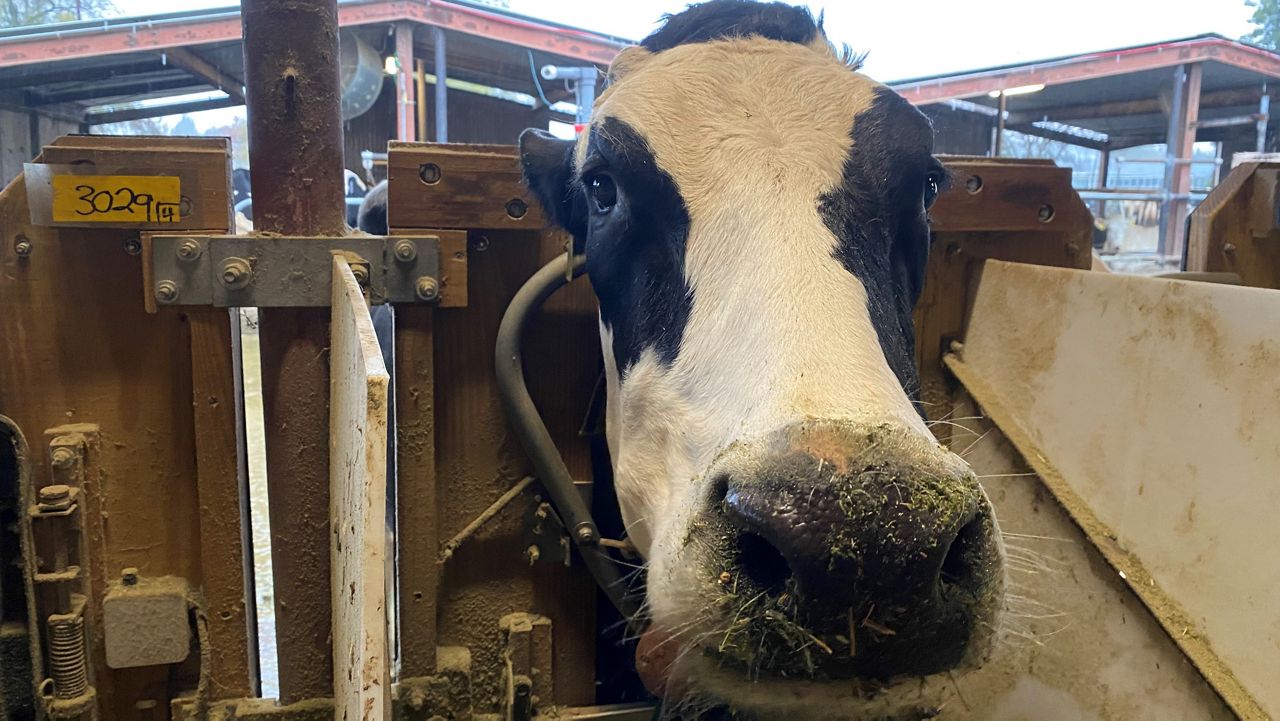SACRAMENTO, Calif. — The University of California, Davis differs from a lot of other college campuses throughout the state.
Situated near acres of farmland, the school is a leader in agricultural research.
What You Need To Know
- Animal science professor Ermias Kebreab has set his sights on the number one cause of methane emissions in the world: cows
- Specifically, studying how adding flaxseed, grape pomace and seaweed to cattle food can reduce their methane emissions
- In some of his studies, Kebreab said they saw up to 90% reduction in the cattle emissions
- His research comes at the same time that California has set a goal to cut 40% of its methane emissions by 2030
The school is even home to its own dairy farm, where researchers like animal science professor Ermias Kebreab and his team explore new farming techniques to combat climate change.
Kebreab has set his sights on the number one cause of methane emissions in the world: cows. Specifically, studying how adding flaxseed, grape pomace and seaweed to cattle food can reduce their methane emissions.
For his work researching methane mitigation techniques, Kebreab was named one of the top 30 climate action leaders in 2023 by Business Insider.
“There is a real potential that we can eliminate this methane and that’s a big deal because that’s the majority of emissions from livestock,” Kebreab said.
In some of his studies, Kebreab said they saw up to 90% reduction in the cattle emissions.
His research comes at the same time that California has set a goal to cut 40% of its methane emissions by 2030.
California’s Natural Resources Secretary Wade Crowfoot indicates how this was a focus at COP 28.

“So in Dubai, we kicked off, formally, this subnational methane coalition. So that’s basically cities, states, provinces that are taking action to reduce their methane. California actually has an action plan to reduce our methane significantly,” Crowfoot said.
Part of that action plan is to direct money from the state’s budget to fund methane mitigation research like Kebreab’s.
“I think with all of these investments and with multiple people all over the world that are working in this area, I firmly believe that by 2030 we can get to 50% if not more. We have solutions right now that have given us over 90% reductions,” Kebreab said.
Kebreab said one of the challenges for broad implementation is getting approval from the Food and Drug Administration. The FDA currently categorizes anything that reduces methane as a veterinary drug, which requires a lengthy approval process.
“This is really not a drug. These are additives that reduce methane emissions so they should not be in that category,” Kebreab said.
Getting approval from the FDA can take anywhere from two to five years. There is one additive — known as Bovaer — that could get the green light as soon as this year. Kebreab said this could be a significant step in fighting climate change.
“We want to show people that this is something that works...it actually helps the environment, helps people and farmers at the same time,” Kebreab said.
Let Inside the Issues know your thoughts and watch Monday through Friday at 8 and 11 p.m. on Spectrum News 1.



